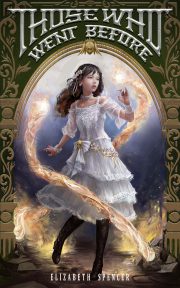Enriching Characters and Sociopolitics with Digital Currencies
The future of digital currencies offers science fiction writers a unique opportunity to enhance their worlds. As a fintech founder and entrepreneur in the crypto industry, I navigate these topics daily alongside regulators, innovators, and organizations. Related challenges impact every level of society, from the people struggling to make ends meet, to the rarified oligarchs.
Here are five ways to explore how digital currencies create and solve problems in your fictional universe. Please note that my words are intended solely for worldbuilding and are not legal or financial advice.
Gold Makes the Rules
Those in power rule, and in modern societies, whoever has the gold has the power. Digital gold is no exception. The powerful create systems of governance to keep that power, operating from ideals and values that vary as much as their methods.
So how can this be used to enhance a story?
When starting off, it helps to establish the goals of the governing system, then decide how digital currencies might be used to create rules, incentives, and punishments. Identify conflicts that might naturally arise between the people in control, those fighting to take control, and those being controlled, along with everyone else who might be dragged along for the ride.
The United States controls the flow of money through its reserve currency, influencing global trade and alliances. While it’s important to protect a nation and its citizens, red tape often exists to make intermediaries rich. Decentralized currencies disrupt these fiefdoms, allowing people to coordinate and move money from anywhere in the world through a borderless peer-to-peer system.
Some digital currencies are used to hedge against inflation and currency debasing, but a pure independent system does not exist. Furthermore, dollars are usually needed for rent, food, property, and tax, and the US controls who can convert digital currencies into dollars. It can also punish bad actors who never touch dollars with fines, arrests, asset seizure, and imprisonment. Since people often fight through money, a battle between opposing monetary systems can season conflicts between people, factions, and nations in your story.
The Consequences of a Public Ledger
Many blockchain ledgers are public and permanent. This is great for transparency and proving where money is—no one could pretend they were rich by renting a fancy car, for example—but now think about how an autocratic surveillance state might use them to monitor their citizens. Public records would report every move as citizens spy and gossip about each other’s spending habits and compete for the most “correct” financial trail. Someone might try to hide by coercing another person to transact on their behalf.
There is also plenty of inspiration from real-world events. Tech-savvy people track and critique how money is spent from ICOs. Internet bots publish the trading activity of whale crypto investors. Permanent ledgers can uncover crime from a single connection, as was the case for a now infamous hacker Jimmy Zhong. He walked free for nearly a decade until a single transaction helped the IRS trace him to a Silk Road hack, uncovering 51,680 BTC (~$3.4 billion at the time).
The Key Is in the Hand of the Beholder
There’s an industry proverb: “not your keys, not your crypto,” which references a feature of many digital currencies called the private key. A private key authorizes actions such as voting, moving currency, or signing a contract. For purposes of worldbuilding, the key can be a digital signature for whatever the writer imagines. It could control currency, security, vehicles, voting rights, declare wedding vows, or even be a signal of identity. Additionally, the key could be digital, physical, or anything in between.
Unlike a bank, which moves money on behalf of a client, a private key holder acts on their own behalf at all times. This safeguards them from a bank run, government asset seizure, and mishandling of funds, such as when FTX used billions of dollars in customer funds to fund its sister company Alameda Research.
However, there’s no protection from mistakes or misfortune. Money phished, hacked, or sent to the wrong place? Lost the key? Too bad, it’s gone forever. This also means that institutions and criminals will come for you directly. Getting kidnapped for ransom or blackmailed is nothing new, but with private keys, once someone steals a key, they control everything it touches. The more powerful the key, the more its holder becomes a target.
When worldbuilding, consider what access keys should have, how people and institutions might be forced to surrender a key, and how they might protect themselves.
Not all digital currencies use private keys, though. A Central Bank Digital Currency (CBDC) is controlled by a governing organization and may have complete surveillance and control over the currency. Due to how CBDCs are presented, people sometimes can’t tell the difference. Some fun plot ideas might include a government that pretends to let its citizens have control, only to later reveal that it controlled everything all along, or a criminal organization that creates fake digital currency under the guise of helping the poor.
Integrate the Familiar with the New
Just as it helps to learn about the trials of space exploration when writing a futuristic space opera, digital currencies can be more deeply explored by studying the history of money. Digital currencies inspire familiar virtues and vices, such as greed, avarice, scams, taxation, and philanthropy. This common thread can be used to make the story more relatable and timeless.
For example, a common crypto scam involves a fake token posing as a real token in order to steal money. The scammers convince unsuspecting victims to buy it, perhaps selling it at an attractive discount. This is quite similar to how people made fake gold, and later, counterfeit bills. Though the method is different, counterfeiting is still possible in your crypto-driven world.
Tie It into Your World
In some cases, a heuristic approach is easier than deciding on what technology to include. Here are some questions to help you explore:
- What kind of government is in power, and what are their goals? How might digital currencies enforce its rules?
- What might characters need digital currencies for? Is there anything they can’t buy?
- How does the government enforce and protect its monetary system? How do people protect themselves and their assets?
- Are monetary records public? Why or why not?
- What are legitimate (and illegitimate) ways people acquire money?
- What happens if someone doesn’t have money?
It probably seems strange that something created out of thin air is worth trillions, but it’s been a long time since the dollar and other nations fully collateralized their currencies. Even when this was the case, shiny metal couldn’t feed a starving person, give shelter or protection, unless someone believed it had value. Like religion, money is a shared experience that’s as real as we believe it to be. In 2010, 10,000 BTC bought two pizzas, and now belief makes those same tokens worth over half a billion dollars. Even fictitious monetary concepts, such as in the Ferengi Rules of Acquisition, can be a foundation for culture and beliefs.
Though it might appear dry on the surface, money can be a window into intrigue and character motivation. By exploring economics and financial systems, you will learn why digital currencies exist and get a glimpse into a future that could spark your next big idea.
Have fun, take risks, and find those great narrative returns.

Libby Schultz is a fintech founder, technologist, CEO, educator, and thought leader in the crypto and gaming space. Her professional writing career spans over a decade in Web3 and gaming. Her 2024 5-star debut novel and BookLife Editor’s Pick, Win Condition, is a science fiction cautionary tale about crypto and gaming, inspired by her work in both industries. She studied data science at Carnegie Mellon and is a crypto subject matter expert for the American Institute of Certified Public Accountants. When not living as a digital nomad, she trains as a circus performer and studies everything about Shiba Inus. You can get her book and find out more about her at https://lib.life/.



